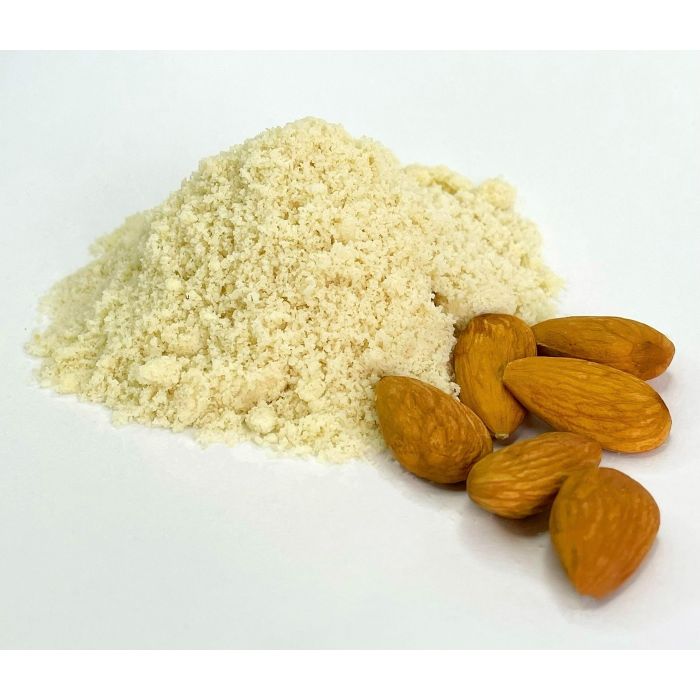Almond Flour 1 kg
Almond flour, a nutritious alternative to wheat flour, supports heart health, aids weight management, regulates blood sugar levels, and provides a good source of protein, fiber, and essential vitamins.
The Health Benefits of Almond Flour A Versatile and Nutritious Health Supplement
Introduction
Almond flour, derived from finely ground almonds, has gained immense popularity in recent years as a healthy alternative to traditional wheat flour. Packed with essential nutrients, almond flour offers numerous health benefits. In this article, we will explore the advantages of incorporating almond flour into your diet as a versatile and nutritious health supplement.
Improved Heart Health
Almond flour is rich in heart-healthy monounsaturated fats, which have been shown to help reduce bad cholesterol levels and improve cardiovascular health. These healthy fats, along with high levels of vitamin E and magnesium, work synergistically to support a healthy heart and reduce the risk of heart disease.
Stabilized Blood Sugar Levels
One of the remarkable benefits of almond flour is its ability to help stabilize blood sugar levels. Almond flour has a low glycemic index, meaning it does not cause a significant spike in blood sugar levels after consumption.
Weight Management Support
Almond flour can be a valuable ally for individuals seeking to manage or lose weight. Its high fiber content promotes a feeling of fullness, reducing the chances of overeating. Additionally, the healthy fats and protein in almond flour contribute to satiety and can help curb cravings. Including almond flour in your diet may aid in weight management by promoting portion control and reducing overall calorie intake.
Digestive Health Promotion
Fiber, an essential component of almond flour, plays a crucial role in maintaining a healthy digestive system. Incorporating almond flour into your meals can be an excellent way to increase your fiber intake and improve your digestive health.
Boosted Nutrient Intake
Almond flour is a nutrient-dense alternative to refined wheat flour. It contains an array of essential vitamins and minerals, including vitamin E, magnesium, calcium, and iron. These nutrients are vital for various bodily functions, such as maintaining strong bones, supporting energy production, and enhancing immune function. By using almond flour in your recipes, you can boost your overall nutrient intake and support optimal health.
Gluten-Free Option
For individuals with gluten sensitivities or celiac disease, almond flour serves as a fantastic gluten-free alternative to traditional wheat flour. Gluten, a protein found in wheat and other grains, can cause adverse reactions in some people. Almond flour allows those with gluten restrictions to enjoy a wide range of baked goods without compromising taste or texture.
Versatile Culinary Ingredient
Apart from its health benefits, almond flour also shines as a versatile culinary ingredient. It can be used in various recipes, including baked goods, pancakes, breading, and more. Almond flour adds a pleasant nutty flavor and a delicate, moist texture to dishes. Its versatility and ability to replace traditional flours make it an excellent option for individuals with dietary restrictions or those looking to explore new flavors in their cooking.
Conclusion
Almond flour is a nutritional powerhouse that offers an array of health benefits. From supporting heart health to aiding in weight management, stabilizing blood sugar levels, and promoting digestive health, almond flour proves to be a versatile and nutritious health supplement. Its gluten-free nature and culinary versatility further add to its appeal. By incorporating almond flour into your diet, you can enhance your overall well-being and indulge in delicious and wholesome recipes.
| Ingredients & Diet | Vegan, Gluten Free, Vegetarian |
|---|---|
| Health Topic | Women's Health, Men's Health, Digestion |



 Trusted since 2010. We are Thailand's first online health food store.
Trusted since 2010. We are Thailand's first online health food store. Secure payments through Thai Bank Transfer, PayPal or Credit Card.
Secure payments through Thai Bank Transfer, PayPal or Credit Card. Shipping to anywhere in Thailand usually 3-4 days via EMS.
Shipping to anywhere in Thailand usually 3-4 days via EMS. This site is registered with the Department of Business Development.
This site is registered with the Department of Business Development.
 Over 500 health and wellness products
Over 500 health and wellness products Everyday savings and weekly promotions
Everyday savings and weekly promotions The best natural and organic produce from around the world
The best natural and organic produce from around the world Committed to you - over 10 years of trusted service
Committed to you - over 10 years of trusted service